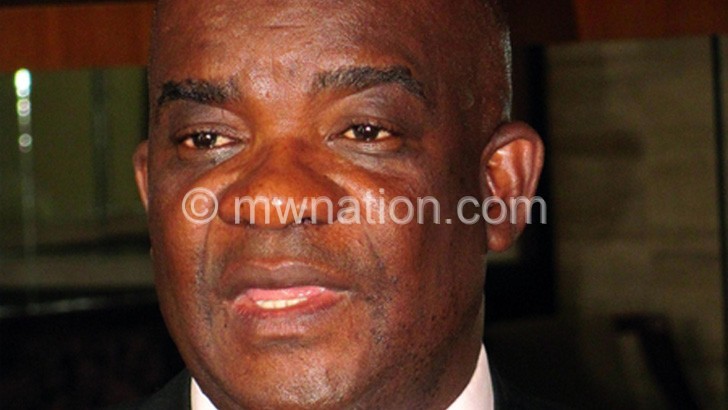Government gags controlling officers
Amid a storm over government’s handling of several investigations on fraud and corruption, Chief Secretary to Government has ordered ministries, departments and agencies (MDAs) to seek authority from his office before releasing information to investigating and prosecuting agencies.
In a memo dated January 9 2016 titled ‘Production of Sensitive and Secret Documents for Criminal Proceedings’, Chief Secretary Lloyd Muhara based the order addressed to controlling officers, heads of department and public agencies on sensitivity of the documents and ‘national security’. But an eminent constitutional lawyer has described the order as illegal.
Wrote the Chief Secretary: “I write to observe that the Ministries, Departments and Agencies (MDAs) are sometimes approached by investigative and prosecuting agencies to release documents that contain information that would be used for prosecuting purposes. Such information is usually sensitive and constitutes government secrets, including Cabinet and national security documents.”
He added: “I wish to advise that MDAs should at all times seek clearance before releasing documents in compliance with the provisions of the Official Secrets Act (Cap.14.01) and the Promissory Oaths Act (Cap.17.01). This will ensure that secret and sensitive Government information is safeguarded.”
Muhara, who initially denied knowledge of existence of the memo, yesterday changed position and confirmed writing the memo.
“I can confirm signing this,” he said.
The move comes barely months after government forced civil servants to also sign secrecy oaths, raising more questions on the motive behind the new directive ahead of the start of a highly contentious Commission of Inquiry on Zambian maize procurement saga and also pending investigations of the high profile K577 billion Cashgate (now revised to K236 billion).
By law, investigating agencies such as the police, Anti-Corruption Bureau (ACB) and Financial Intelligence Unit (FIU) are mandated to collect information or any document from any office or persons without exception.
Part of the Corrupt Practices Act which gives ACB its mandate clearly stipulates that the bureau’s orders must be complied with by the person it orders to take action.
It reads in part: “(b) require any public officer or other person to answer questions concerning the duties of that public officer or of any other public officer or other person, and order the production for inspection of any standing orders, directives or office instructions relating to the duties of the public officer or such other public officer or other person.”
On the issue of documents the bureau requests, it reads: (c) “Require any person in charge of any office or establishment of the government, or the head, chairman, manager or chief executive officer of any public body or private body to produce or furnish within such time as may be specified by the bureau, any document or a certified true copy of any document which is in his possession or under his control and which the bureau considers necessary for the conduct of investigation into any alleged or suspected offence under this Act.”
Solicitor General and Secretary for Justice Janet Banda yesterday declined to comment on the legal implication of the order, saying she is yet to see the memo.
“I have not seen the document, I have been away in Blantyre, I cannot comment on a document I have not seen,” said Banda.
However, Danwood Chirwa, a South Africa-based constitutional law expert said the ‘directive from the Chief Secretary is illegal and unconstitutional’.
“It tantamounts to an order to government officials to frustrate, interfere with or derail criminal investigations or the course of justice in general. This, in fact, constitutes a criminal offence. There is a bigger problem if the author of this letter also happens to be a judge. If it is him, he should have known that his conduct and letter are at once illegal and criminal.
“I have argued for a long time that judges should never be seconded to the Executive. This is a proper issue of the separation of powers. A judge cannot serve the Executive and expect to return to the bench as has been happening,” said Chirwa.
Billy Mayaya, a civil rights activist said the move was shocking and against the spirit of the Constitution.
“In light of the Access to Information Bill and the Right to Information as enshrined in the Republican Constitution, the order raises serious questions about the erosion of democratic principles and values,” said Mayaya. n






